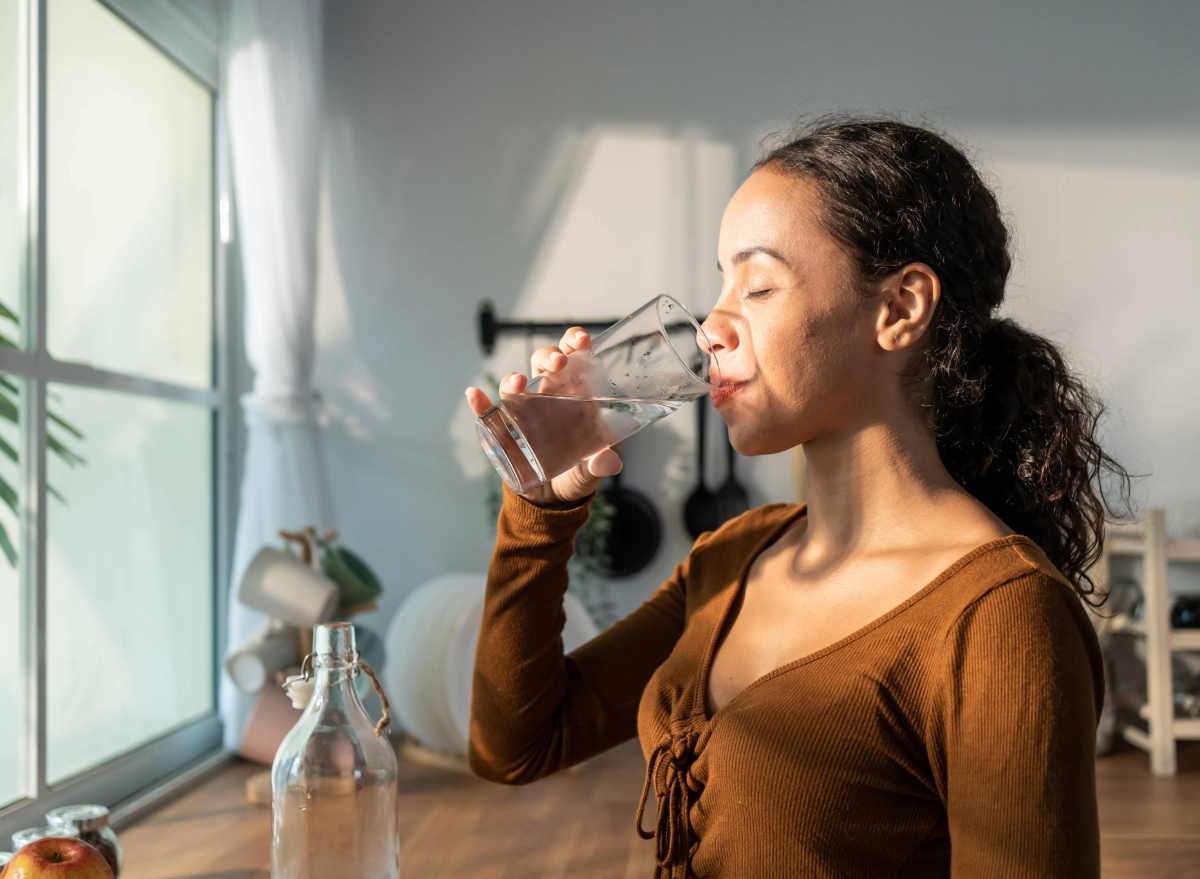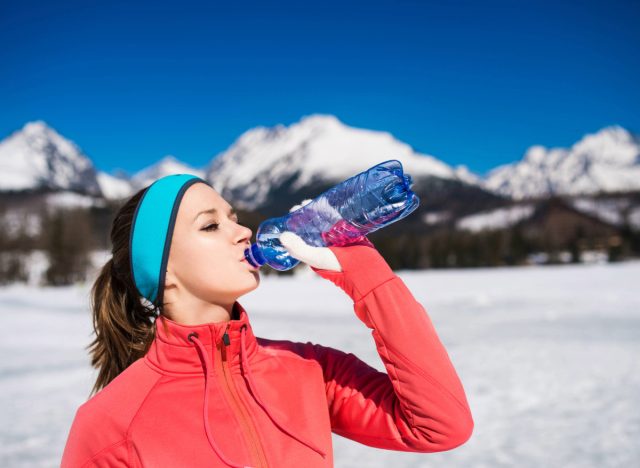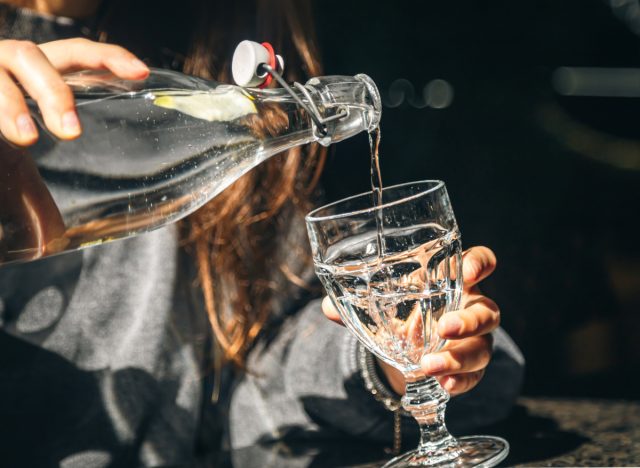Here’s How Much Water You Should Drink Every Day To Lose Weight

If you want to lose weight, you’re likely reviewing every part of your daily regimen to see where you can make improvements. An excellent place to start is in the kitchen. Reevaluating what you eat and drink is a crucial part of the overall process. As a matter of fact, something as simple as drinking water can help support your weight-loss efforts. We spoke with Amy Goodson, MS, RD, CSSD, LD, a registered dietitian and certified specialist in sports dietetics who sits on our Medical Expert Board, to find out how much water you should drink daily for weight loss. Keep reading to learn more, and when you’re finished, be sure to check out the 10 Best Frozen Foods To Buy at Whole Foods for Weight Loss.
Can drinking water help you lose weight?

When you think of drinking water, weight loss may not be the first thing that comes to mind. When you reach for a glass to pour yourself some refreshing H2O, you might be feeling parched or dehydrated, or you just completed an invigorating workout and need to rehydrate. Staying hydrated and on top of your water intake is key no matter the time of year, but can drinking water support your weight-loss journey? According to Goodson, it can indirectly. “Drinking water can be beneficial to help with satiety, but it’s not a direct cause of weight loss on its own,” she tells us.
Here’s how water can support your weight-loss efforts:
- Increased satiety: Having water before and after meals fills you up. This could result in consuming fewer calories during mealtime, Goodson explains. In addition, according to research from Wageningen University in the Netherlands, individuals who drank a milkshake and then a large glass of water experienced reduced feelings of hunger and increased satiety, compared to those who drank a small glass of water following their milkshake.
- Calorie-free hydration: Drinking water is a calorie-free way to boost your hydration. Rather than grabbing a sugary beverage like sweetened iced tea or an energy drink, opting for water instead “can help reduce overall calorie intake, supporting weight management,” Goodson tells us.
- Enhanced physical performance: Ensuring your body stays hydrated is critical to achieve optimal physical performance. “[This] can contribute to burning calories during exercise,” says Goodson. “Dehydration can lead to fatigue and individuals moving slower in a workout.”
How much water should you drink daily for weight loss?

When it comes to the ideal amount of water you should drink daily to lose weight, there’s no one-size-fits-all approach. “While there is an old-school rule that you should drink eight eight-ounce cups of water, the truth is that many factors impact how much water you need, including your age, sex, activity level, and overall health,” Goodson explains. “For women, the amount of total water is about 11.5 cups per day, and for men, about 15.5 cups. These estimates, however, include fluids consumed from both foods and beverages, including water. You typically get about 20% of the water you need from the food you eat (fruit, vegetables, soup, etc.). Taking that into account, women need about nine cups of fluid per day and men about 13 cups in order to help replenish the amount of water that is lost.”
Goodson gets into more specific tips below. These recommendations shine a spotlight on drinking water around meals, which can boost “fluid-improving satiety around eating.”
Before meals: Drinking water before meals can help you better control portion sizes and decrease the amount of calories consumed during meals.
Throughout the day: Being consistent with hydration is the name of the game. “Sipping water throughout the day can help maintain hydration levels,” Goodson tells us. “Plus, many people often confuse thirst with hunger and might reach for food when they are actually just thirsty. This can potentially lead to greater calorie intake.”
After meals: After finishing a small meal, where you feel satisfied rather than full, drinking more water can boost your feelings of fullness.
Before exercise: Drinking water before exercising is key to performing at your very best and avoiding or delaying dehydration. “The goal is to consume 16 to 20 ounces of fluid with your pre-workout meal, two to four hours before exercise, then continue drinking fluid leading up to the workout,” Goodson explains. “The goal is to start exercise with your urine color pale yellow to clear.”
During exercise: While you exercise, you should aim to drink five to 10 ounces of water every 20 minutes to lower your chances of getting dehydrated, Goodson tells us.
After exercise: “While most people don’t weigh pre and post-exercise, the recommendation is to consume 16-20 ounces per pound lost,” says Goodson. “For most individuals, the goal is to consume 16 to 20 ounces of fluid, and then continue to hydrate until their urine color is pale yellow to clear.”









